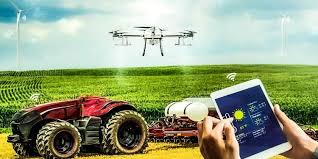The Importance of Fabrication in Modern Agriculture
Modern agriculture has witnessed a significant transformation thanks to the advent of sophisticated machinery. Farm equipment fabrication plays a crucial role in enhancing agricultural efficiency. Customized tools and machinery meet specific farming needs, allowing for better productivity and less waste. The shift towards precision farming is a prime example of how elaborate fabrication can streamline agricultural processes.
Fabricated farm equipment is designed to cater to unique agricultural needs, making operations more effective. Precision farming, for instance, leverages specialized machinery that offers pinpoint accuracy, optimizing input usage and maximizing yield. This technique has far-reaching benefits, from reducing resource wastage to enhancing crop quality. Precision agriculture is taking the spotlight as a game-changer in modern farming practices.
Additionally, the ability to create customized solutions for farmers helps tackle various challenges. From soil preparation to harvesting, fabricated equipment offers a level of specificity that standard tools cannot match. This customization leads to improved operational efficiency and ensures that farmers can focus more on production rather than dealing with the limitations of generic equipment.
Technological Advancements in Farm Equipment
The integration of technology in farm equipment fabrication is transforming the agricultural landscape. Modern technologies like IoT, automation, and artificial intelligence are major forces behind this change. As automation replaces manual labor, farming operations become more efficient and require less work. AI-powered machinery can make real-time decisions and adjustments, ensuring optimal performance even under variable conditions.
Another ground-breaking technology that is causing waves in the agriculture industry is the Internet of Things (IoT). IoT facilitates seamless data collection and real-time analytics by connecting farm machinery to the cloud, empowering farmers to make data-driven decisions. For example, precision agriculture leverages IoT to enhance various farming operations, from irrigation control to crop monitoring.
Moreover, GPS technology in farm machinery allows for better navigation and resource management. Automated tractors and combines can run more efficiently, reducing fuel consumption and improving accuracy in planting and harvesting. These developments reduce the carbon footprint of agricultural operations, increasing farming efficiency and promoting environmental sustainability.
Moreover, drones equipped with advanced sensors are becoming essential for crop surveillance. These aerial devices can swiftly cover vast areas, offering farmers comprehensive data on crop health, soil conditions, and pest infestations. The timely insights provided by drones enable better crop management, leading to higher yields and more efficient use of crop storage buildings.
Why Custom-Built Equipment is Essential
Every farm is unique, with specific needs that standard equipment may not meet. Custom-built equipment addresses this gap by offering personalized solutions tailored to individual requirements. Whether tackling unique terrains, specific crops, or particular tasks, fabricated equipment ensures farmers can operate efficiently and effectively.
Consider farms located in hilly regions. Standard equipment might struggle in such terrains, but customized machinery designed for these environments can seamlessly navigate through, enhancing operational efficiency. Similarly, machines tailored for specific crops can significantly boost yields while reducing manual labor. These examples underscore the importance of custom-built equipment in modern agriculture.
Custom-built equipment is designed to handle different climate conditions, ensuring farmers in diverse environments are equipped to tackle their unique challenges. Colder regions can have features to prevent freezing or heavy snow, while hotter climates can have cooling systems to prevent overheating. This level of customization ensures farmers are well-equipped to tackle their unique challenges. Additionally, custom-built equipment often incorporates the latest technological advancements, such as sensors and automated systems, leading to significant time and cost savings.
Future Trends in Farm Equipment Fabrication
The future of farm equipment fabrication is set to witness several exciting developments. Automation and robotics are expected to become integral components of agricultural machinery, drastically reducing manual labor while enhancing precision. Furthermore, improvements in materials science result in the development of more robust and effective equipment.
Another significant trend is incorporating blockchain technology in the agricultural supply chain. This ensures transparency and traceability, making blockchain-integrated equipment increasingly relevant. Renewable energy is also gaining traction, with solar or wind energy equipment contributing to sustainable farming practices.
Due to these developments, the agricultural industry will continue to change, propelled by technological advances and a growing emphasis on sustainability. The coming years promise to bring even more sophisticated tools and machinery designed to make farming more efficient and environmentally friendly.
Technological developments and an increasing emphasis on sustainability drive interest in developing autonomous agricultural machinery outfitted with sophisticated sensors and artificial intelligence. Genetic engineering and biotechnology advancements influence farm equipment fabrication, with machines able to plant genetically modified crops with higher yield potential or resistance to pests and diseases. This promotes eco-friendly farming practices and reduces reliance on chemical pesticides and fertilizers. The trend towards micro-farming and urban agriculture is also shaping the future of farm equipment, with small-scale, high-precision tools becoming famous for urban environments or indoor farming setups, catering to the growing demand for locally produced, fresh food.
